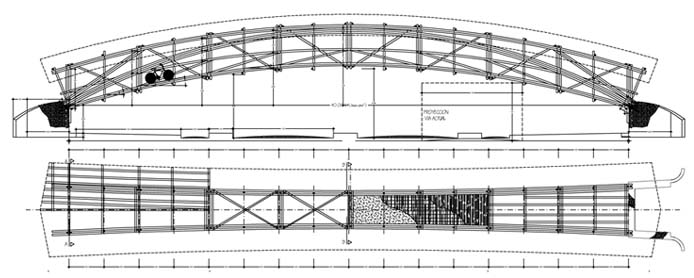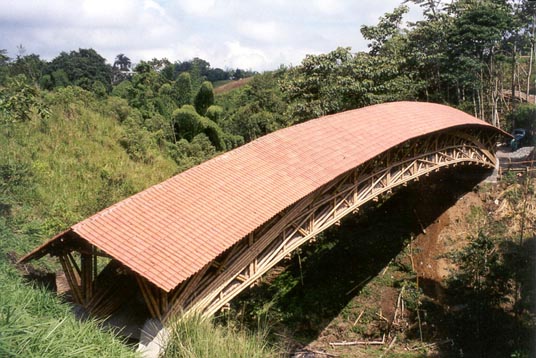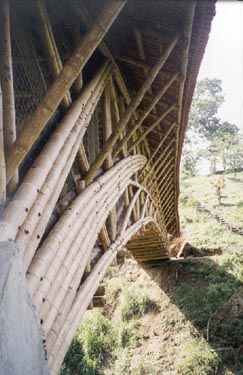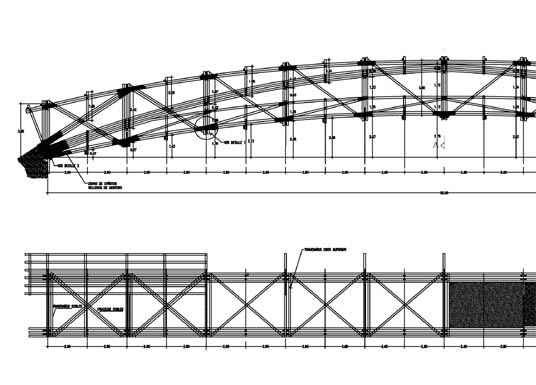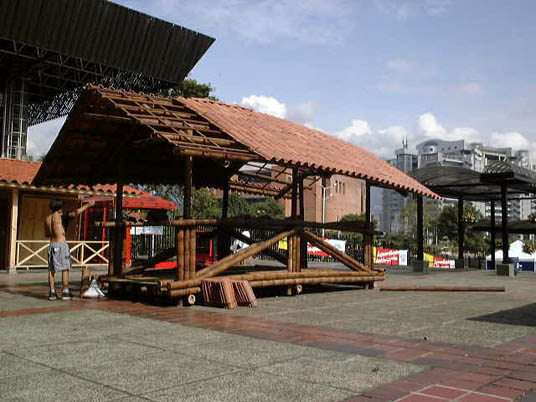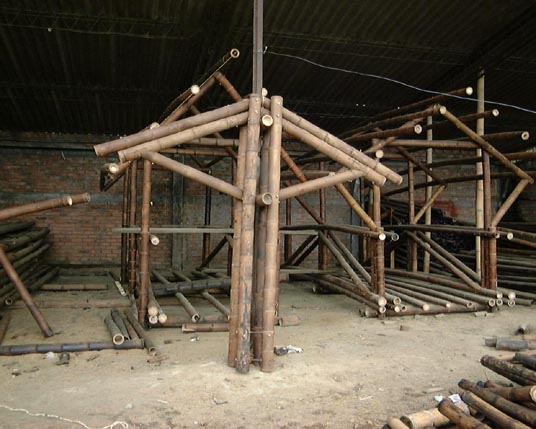|
Naturally in the beginning is the harvest, which is unfortunately
caused by a bare blow, because reforesting just happens occasionally. As experience
shows the central third of a bamboo pipe has the greatest firmness. First of
all the pipes were cut bit by bit to dry them 6 - 12 weeks on a wooden
storage place. If you take into consideration, that every bamboo was exposed to
individual conditions during growth, itīs only natural that every pipe has different
properties. So you arrange all bamboo pipes by length, straight, functional
abilities, etc. Additional you make a prechoice which pipes you could insert
into the suitable part of the bridge, because in some spots you even need curved
bamboos.

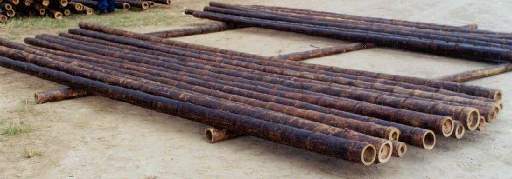
After the drying the braids and the moss were washed off, and the
little walls inside the pipe were stuck through. So it was possible to
waterproof the bamboo actually and completely, because just the smooth zones
inside are able to take up the salt solution. Normally in Columbia people use
benzine or pentachlorphenol for this process, but Jörg Stamm refused and decided on
a waterproof solution of bor.
In the next stage the first curve construction will be made of one
piece on the ground. To put the geometry of this bridge with very simple measures at
the face into action, people served some tricks. At first they put up with the help
of a tightened rope the zero line, which will correspond in the end to a
horizontal line (here the lower side) of the bridge. For this step you choose the
greatest possible area in the surrounding, where you can measure and mark the
distances of the carrier elements. To put on exactly rectangular the correct
height of every vertical bar, you span a triangle with the help of a second rope and
fix the bamboo bar by means of the Pythagoras sentence. First of all you mark
this spot.
At this mark the bamboo bar will be drilled through and a metal bar
will be hit through the hole about 30 cm into the ground.
12 cm of the metal bar should be visible, so you can fix the curved
bamboo pipe in this centre.
Connections
To produce a very long and loadable pipe out of several little
bamboos, the intersection should be close to the second or third knot. Then
you process the inside of the pipe and break through the little walls to lay in a
little metal rod. Now the mortar can be filled in. The distance of the cuts of these
combined carrier elements should amount at least 1.5 m.
By curves of static effective pipes, which lay on top of each
other, the knot should better be moved. this principle is known from the
brickwork building, too.
During time of construction it is necessary to connect the pipes
temporary, for this a strap will be put on which keep the bamboos in the
corrct position. Later on the holes for the screws will be drilled and the
connection gets durable. This screw connection should be close to the knot, though
you have to pay attention not to tighten the screws too much, because there is the
danger of crushing the pipes.
To resist the arising thrusts during compression, thin metal
rods will be laid in the appropriate spots in the "beam".
To prevent the rods from crushing the pipes under compression, the
knot will be filled with mortar, too. For this it is necessary to drill a hole with
a minimum diameter of 1 cm to fill in the mortar as good as possible.
|
